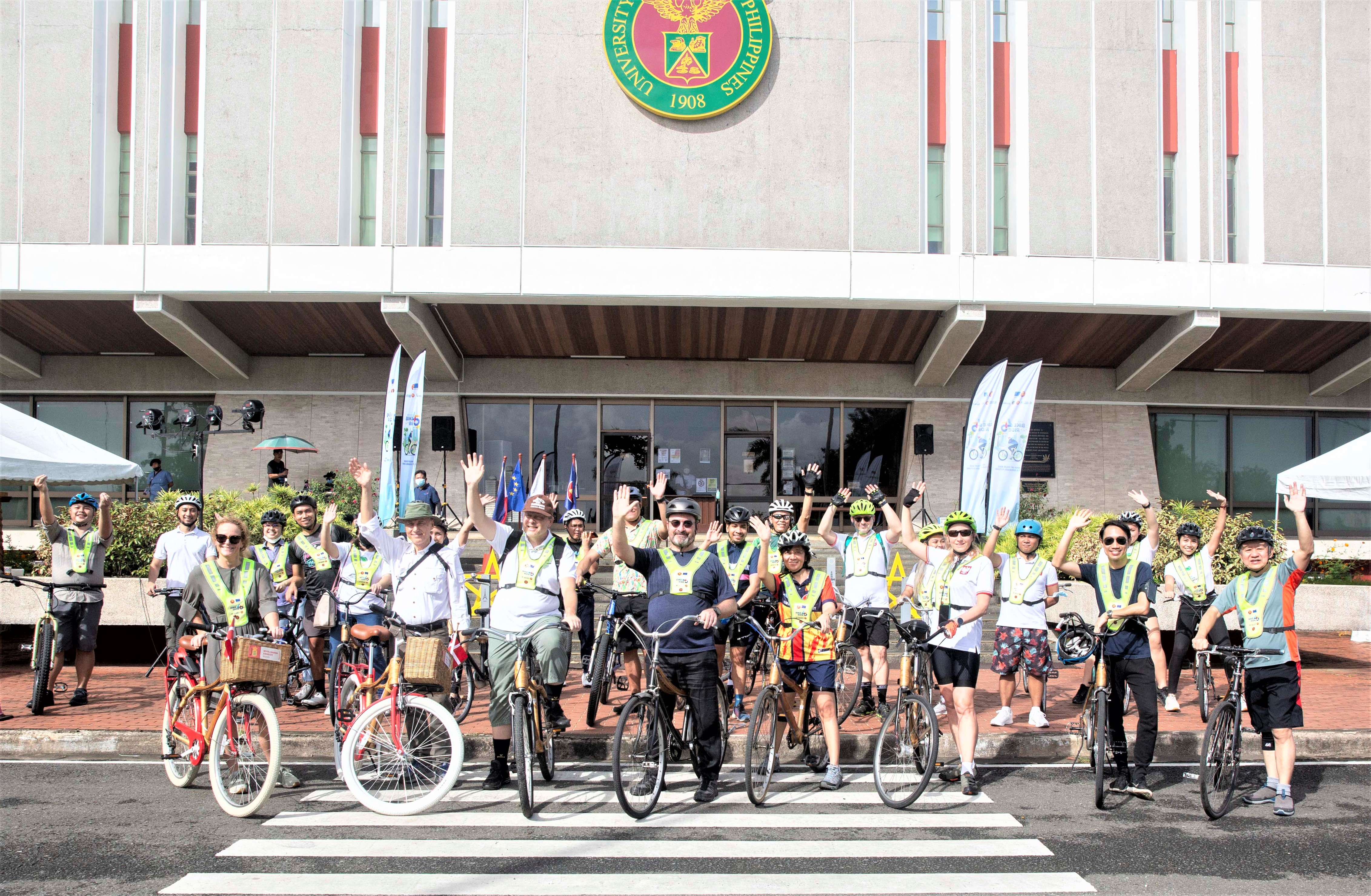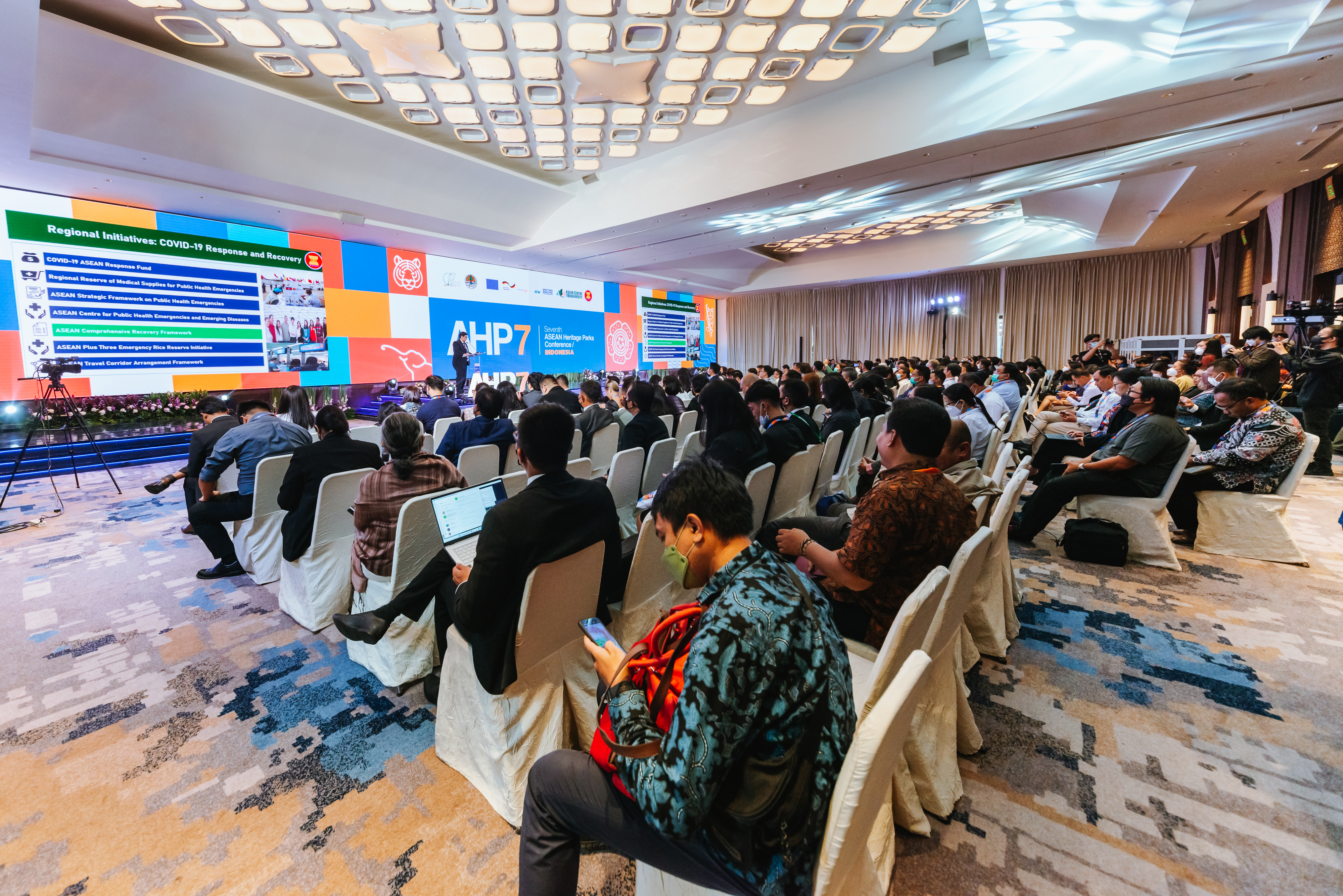MONTREAL, Canada -- The ASEAN Centre for Biodiversity (ACB) welcomes the statement of Philippine President Ferdinand R. Marcos, Jr. during the ASEAN-EU Commemorative Summit in Brussels, Belgium, that calls for extended cooperation activities and further support for conservation work in the ASEAN region.
Speaking with the European Union (EU) member states, Marcos emphasised that the world must “get together” to address the effects of climate change and attain mutual sustainable development for the two regional blocs. He underscored the crucial role of the ACB in conserving biodiversity, particularly in preserving the rich natural heritage of the region through the ASEAN Heritage Parks (AHP).
“The ACB and the EU’s long-standing partnership has helped support the AHPs and other nature conservation initiatives in the region, all of which, not only contribute to addressing biodiversity loss, but also towards achieving multiple benefits such as improving community livelihoods and increasing resilience against climate change and future pandemics,” said Dr. Theresa Mundita S. Lim, ACB Executive Director. “We are pleased that these efforts in support of the ASEAN Member States have been recognised by no less than the President himself.
The ACB serves as the secretariat of one of ASEAN’s flagship initiatives, the AHP Programme, which focuses on recognising outstanding protected areas and providing support for their effective management. The EU-supported Biodiversity Conservation and Management of Protected Areas in the ASEAN (BCAMP) Project provides the AHPs and protected areas with support for capacity development; monitoring and law-enforcement technology; and communication, education, and public awareness, among others. The project likewise contributes to the mobilisation of young biodiversity advocates through the ASEAN Youth Biodiversity Programme (AYBP) by empowering them to take active roles in policy advocacy at the local, regional, and global levels.
Marcos’ call for stronger ASEAN-EU cooperation comes at an opportune time as biodiversity targets for the next decades are being agreed upon and finalised at the ongoing UN Biodiversity Conference or CBD COP 15 in Montreal, Canada. The ACB, along with the delegates from the ASEAN Member States (AMS) joins the approximately 20,000 representatives from 196 nations in advancing regional goals and priorities for the conservation and sustainable use of the region’s rich natural resources.
“As we recalibrate our gears and navigate towards these new and realistic targets, the ASEAN will need all the support that we can get from our national governments and our international partners to achieve these goals. We are indeed grateful for the strong support from our Host Country, the Philippines, in our regional conservation efforts,” Lim said. “The ACB stands ready to bear these challenges, hand in hand with the AMS and the various stakeholders in the region and beyond, because we are all part of the solution to a better and greener planet,” she added.
It can be recalled that during the 19th ASEAN-India Summit held in Phnom Penh, Cambodia, Marcos likewise recognised the need to curb biodiversity loss to mitigate the destructive effects and impacts of climate change. He encouraged India to continue supporting the work of the ACB in promoting the effective management of ASEAN Heritage Parks as a nature-based solution to the impacts of the changing climate. Also during the 40th and 41st ASEAN Summits in Cambodia, Marcos urged the ASEAN to continue its support for the ACB, the sole ASEAN centre hosted by the Philippines, in its “efforts to conserve, protect, and advocate for the sustainable use of biodiversity and adopt evidence-based approaches to climate change.” (ACB)






